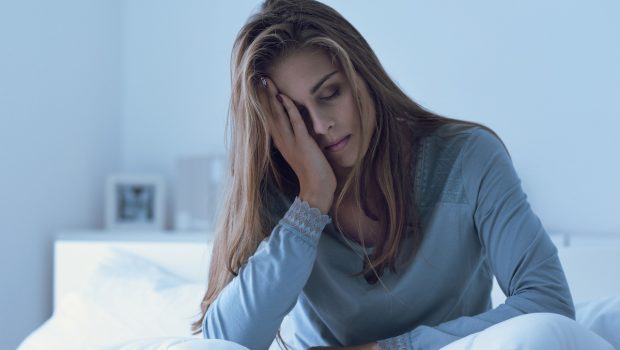Lack of Sleep Can Harm Us Genetically
by Doug Pucci
Scores of people worldwide don’t get seven to nine hours of sleep at night, and new research is indicating the harm to our health this lack of sleep causes. It shows low sleeplessness may be negatively affecting hundreds of genes in our bodies and predisposing us to some serious health conditions.
About half of the U.S. population doesn’t get enough sleep; of the people that say they don’t need more than five or six hours of sleep every night, fewer than 1 percent actually have a gene variant that makes this belief a reality. One thing the studies do not discuss is how or whether stress is the real culprit.
With that caveat, there is a study conducted by the Surrey Sleep Research Centre and published in Proceedings of the National Academy of Sciences that is monitoring healthy volunteers that got 8.5 hours of sleep one week and 5.7 hours of sleep the next week. Blood tests after each week showed participants that slept less than six hours experienced changes to 711 RNA genes. Whether or not these changes are permanent is unknown.
The affected genes were associated with stress, inflammation and disease-fighting ability. For some, given the right epigenetics, or environmental conditions, these changes could lead to a variety of health issues, including cognitive decline, depression, compromised immunity, diabetes, obesity, increased risk of tumors and cardiovascular disease.
Sleep is a natural and powerful way for our bodies to detoxify, allowing beta-amyloid plaque—a biomarker of Alzheimer’s disease—to clear from the brain. The National Institute on Aging states that the particularly toxic beta-amyloid 42 is found in abnormally high levels and disrupts cell function in the brains of those with Alzheimer’s.
An interesting peer-reviewed study published in Anaesthesia, the journal of the Association of Anaesthetists, studied the impact of sleep deprivation, broken sleep and shift work on on-call healthy doctors. Blood tests revealed that overnight, on‐site and on-call participants had lower baseline DNA repair gene expression and more DNA breaks than participants that did not work overnight. Doctors, nurses, emergency personnel, security and such broadly fall into this category.
Our natural circadian rhythm regulates our wake-sleep cycle and responds mainly to the cycle of light and dark in our environment. When the light-dark cycle is disrupted, our circadian rhythm is also disrupted, throwing our sleep patterns out of whack. If this happens on a regular basis, the important biological functions governed by sleep are also thrown off, which can result in several potential health risks from cognitive and psychiatric disorders to autoimmune problems, cancer, and rheumatoid arthritis.
Common causes to sleep disruption that affect the body’s circadian rhythm include the use of cell phones, computers and watching TV in bed or right up to bedtime. We can avoid this by shutting off devices and TV at least an hour or more before we retire.
Studies have shown that not getting enough sleep or experiencing broken sleep can negatively impact DNA repair and immunity. Much of this is related to environmental and lifestyle factors such as stress, which can cause sleep problems, and sleep problems can make us react more negatively to stressful situations. However, not getting sufficient sleep actually causes hormonal changes in our bodies, among the effects of which is longer-lasting anxiety, depression and a lessened ability to deal with emotional difficulties.
Dr. Doug Pucci, DC, FAAIM, adheres to a functional medicine approach with patients and believes in treating underlying, root causes of disease. In practice, he provides nutrition, advanced testing for hormones and gut microbiome, blood testing, epigenetics, and brain/body well-being. For more information, call 201-261-5430 or visit GetWell-Now.com.




























